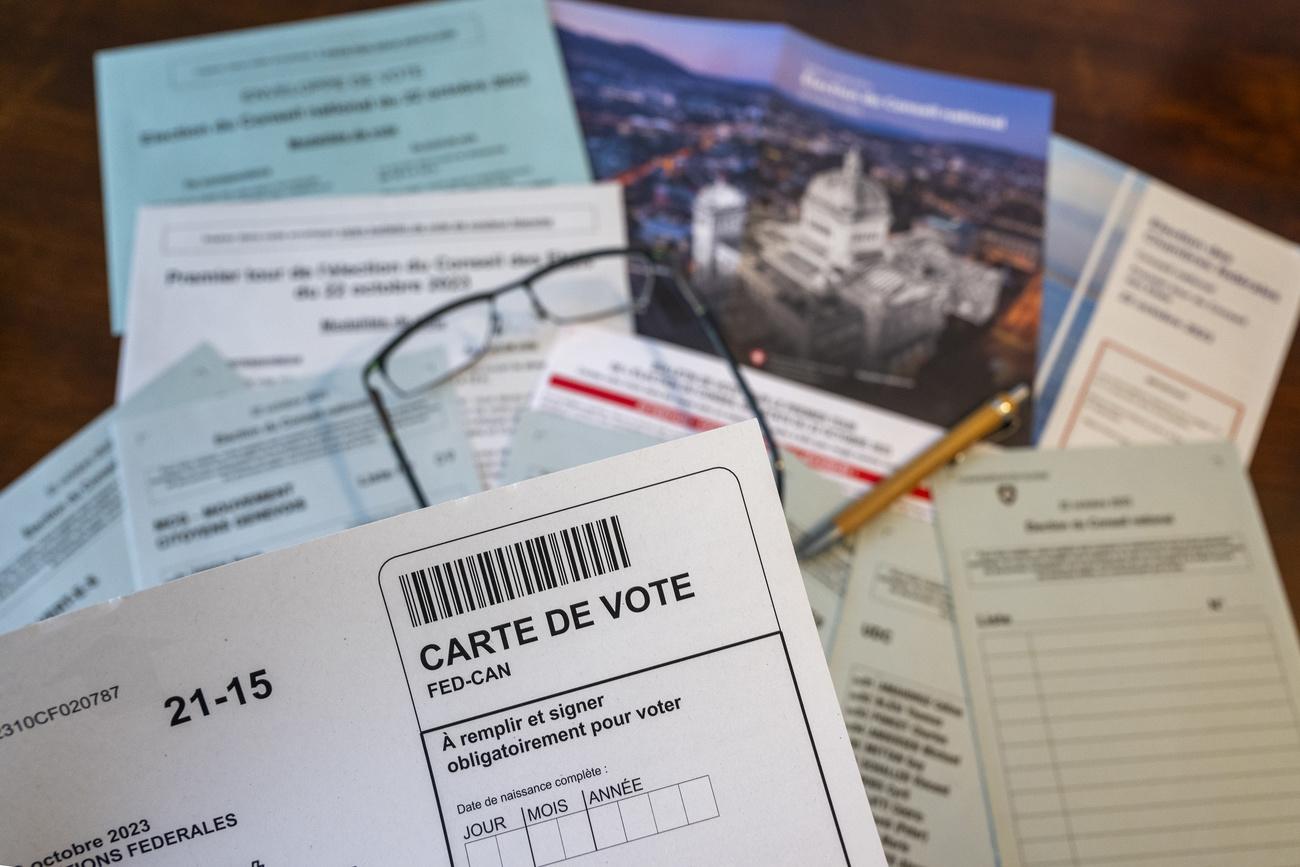
Switzerland Today
Hello from Bern,
Several Swiss cities have banned demonstrations in the wake of the war in Middle East, prompting questions about how local officials balance the right to protest with security concerns.
There's also some positive news out there for Swiss tourism.
In the News: a beautiful train ride, fewer babies, and a valuable currency.

- The GoldenPass Express, which runs between the Swiss towns of Montreux and Interlaken, has been honoured by National Geographic. It topped the list of the most luxurious trains in the world, according to a selection by the US magazine. For extra luxury, the magazine recommends booking prestige class, where heated leather seats recline and rotate 180 degrees.
- The Swiss franc continues to be sought out as a safe haven in the wake of the worsening situation in the Middle East. It has gained significantly in value. The euro hit a new all-time low against the franc of 0.9449 on Wednesday afternoon.
- Switzerland reaffirmed its solidarity with Ukrainian neighbour Moldova. Interior Minister Alain Berset, who holds the rotating Swiss presidency this year, received Moldovan President Maia Sandu in Bern. She also visited a pharmaceutical factory and the Federal Institute of Technology ETH Zurich during her visit.
- Significantly fewer babies were born in Switzerland in 2022 than in the previous year. At the same time, infant mortality increased slightly, according to a report by the Federal Statistical Office (FSO).
- Saint-Ursanne in canton Jura and Morcote in canton Ticino have been awarded the “Best Tourism Villages” label by the World Tourism Organisation (WTO).
- Basel airport closed down today after a bomb scare. The airport is actually located in France, which faced a series of scares today. This morning fourteen French airports received threats of attack.

If e-voting is a stress test for democracy, are we in trouble?Stop putting snails on your face, it’s bad for your health, say researchers.
Yes, and no, says the Republik, which looked into the long and winding storyExternal link of e-voting in Switzerland since the idea was first broached two decades ago. It’s been a story of “bankruptcies, bad luck and mishaps, and its happy ending is as provisional as it is deceptive,” writes the author.
This past summer the Federal Chancellery announced that e-voting was ready for another trial run on the big stage – the federal elections. Three cantons were given permission to trial online voting again. The Republik though points out that if you look at the technical requirements, “one reaches the conclusion that the state would do best to require the Swiss electorate to complete a one-week cyber course”. The responsibility for doing online voting correctly is falling on the voters themselves to ensure they have software updates, don’t download phishing emails, among other things.
What is unfortunate about the current trial, writes the author, is the timing. The country has been hit with a series of cyber attacks and fatigue is setting in with the public. Moreover, groups that are sceptical of the state are louder and have a greater presence online. This all presents challenges for e-voting.
But this doesn’t mean e-voters should despair, writes the author. There’s growing awareness that Switzerland needs to digitalise and the Swiss Covid App proved its possible.
Have you ever put a giant land snail on your skin? If so, you aren’t alone. But it isn’t harmless, say researchers at the University of Lausanne who conducted the first worldwide study of the large giant snail, which has become a popular pet in Switzerland.
“Social networks are full of photos of people putting the animal in contact with their skin, or even their mouth. The mollusk’s slime is supposed to be beneficial for the epidermis, when in fact it is a vector for diseases such as rat lungworm, which can cause a form of meningitis in humans,” warns Cleo Bertelsmeier, associate professor in the Department of Ecology and Evolution at the Faculty of Biology and Medicine of the University of Lausanne (UNIL), quoted in a press release on Thursday.
A particularly interesting feature of the study was that the biologists used data from social networks to establish a global map of the areas where the animal is found in captivity, and to assess the at-risk behaviours of individuals. The researchers are calling for governments to clamp down on the trade of the slimy creatures.
More

In compliance with the JTI standards
More: SWI swissinfo.ch certified by the Journalism Trust Initiative

